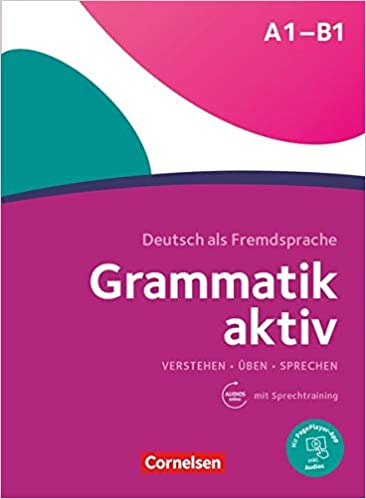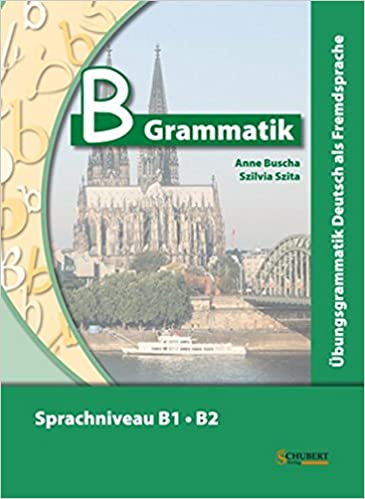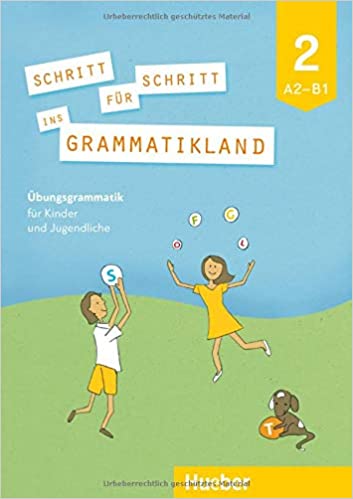German institute
B1 Grammar
In your B1 German course at German Institute you will learn how to deal with most situations (e.g. when traveling). You will also learn to express yourself orally and in writing about your areas of interest. Therefore, you will also learn grammatical structures that are important for written expression, such as relative clauses, genitives, double connectors, subjunctive II and passive voice.
Here you can find some free grammar exercises:

B1 Grammar (B1.1 basics)
B1 Grammar (B1.2 basics)
- Adjectives as nouns
- N-declension
- Simple past – type 1
- Simple past – type 2
- Simple past – type 3
- Relative clause (dative)
- Relative clause (accusative)
- Relative clause (with preposition)
- Relative clauses
- Conjunction/conjunctional adverb: “Obwohl” (“although”) and “trotzdem” (“still”)
- Future I – formation
- Future I – use
- Conjunctions: “wenn,” “falls,” and “ob” (different ways to say “if”)
- Infinitives with and without “zu”
- Conjunctions: “da,” “weil,” “während,” “bevor” (“since,” “because,” “while,” and “before”)
- Comparative and superlative I
- Comparative and superlative II
- Subjunctive II (past)
- Subjunctive II: Hypothetical wishes
- Past perfect
- Conjunction: “nachdem” (“after”)
- Genitive I
- Genitive II
- Preposition: “trotz” (despite”)
- Adjektiv declension (genitive)
- Causal conjunctions
- Preposition: “wegen” (“due to”) + genitive
- Participles as adjectives
- Conjunction: “sowohl…als auch” (“as well as”)
- Conjunction: “nicht nur…sondern auch” (“not only…but also”)
- Conjunction: “weder…noch” (“neither…nor”) and “entweder…oder” (“either…or”)
- Verb: nicht/nur “brauchen” (“to not need”/”only need”)
- Verb: “brauchen” (“to need”) + noun
- Expressions with “es” (“it”)
- “Es” or no “es”
- Conjunction: “zwar…aber” (“though…”)
- Wort formation: nouns
- Conjunction: “je…desto” (“the…the”)
- Modal particle
- Conjunctions: “indem” (“by”) and “sodass” (“so that”)
- Causal, modal, and consecutive clauses
- Local and temporal prepositions
- Simple present passive using modal verbs
- Present perfect passive and simple past passive
- Conjunctions “anstatt” / “ohne”…”zu” / “dass” (“instead of” and “without”)
- Conjunction: “damit / um…zu” (“so that”)
- “Als ob” (“as if”) + subjunctive II
B1+ Grammar (B1 plus – part 1)
- Tense forms: speaking about past events
- Simple past and present perfect of irregular verbs I
- Simple past and present perfect of irregular verbs II
- Simple past and present perfect of irregular verbs III
- Verbs and complements
- Use of simple past, present perfect, and past perfect
- Separable and inseparable verbs (trennbare und untrennbare Verben)
- N-declension
- Plural formation
- Adjective declension
- Comparative and superlative
- Connectors
- Causal, concessive, and consecutive clauses
- Infinitives with and without “zu”
B1+ Grammar (B1 plus – part 2)
- Verbs with prepositions
- Futur I: speaking about future events
- Futur I: conjectures
- Reflexive verbs
- Relative clauses
- Was/wo/wohin/woher (which/where/whither/whence) as relative pronouns
- “damit” (“so that”), um… zu (“to”), “zum” (“to”) + nominalised infinitive
- Subjunctive II
- Conjunctions: Temporal clauses
- Temporal prepositions
- Passive voice
- Local prepositions (with two-way prepositions)
- Common mistakes
German institute
B1 books
Looking for B1 grammar exercises? We recommend the following books.
German institute
B1 Vocabulary
You want to practise your vocabulary? German Institute offers you various free exercises.

German institute
B1 German language course
In our B1 German language course at German Institute, you will study German grammar using structured techniques. You can do your course at our school facility or online. Our courses are communicative and primarily directed towards academics.




